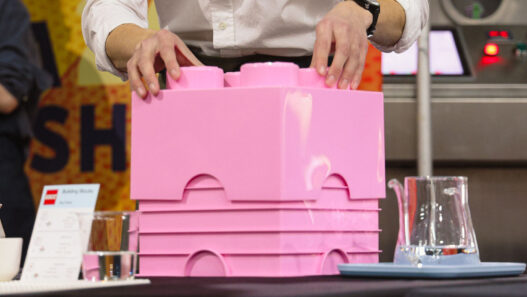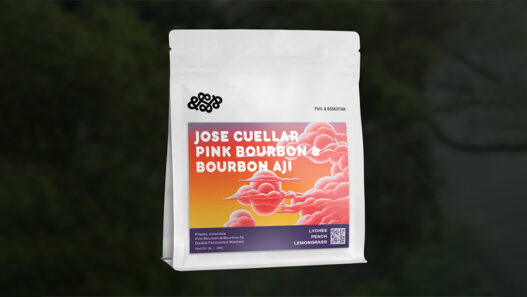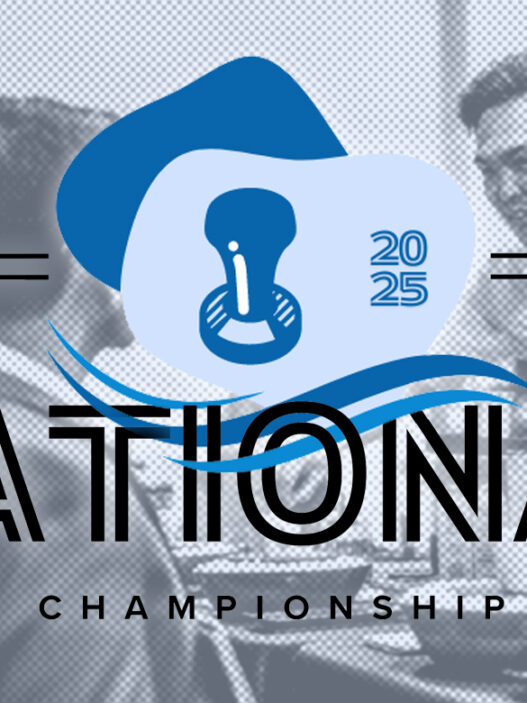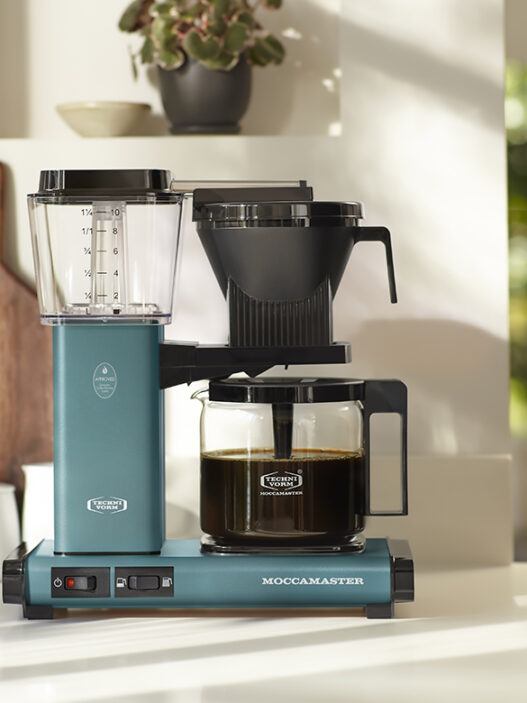As Alex Bernson’s landmark three-part series on barista health reaches its denouement, we invite you to look back at Part 1 and Part 2. Mr. Bernson is a staff writer for Sprudge.com.
In this third and last article in our series on the health effects of working in coffee, I want to question established notions of both what we know about coffee and health, then suggest some steps the specialty coffee industry can take to improve. This starts with a discussion of caffeine, stress and heart-health. From there I’ll examine historical levels of caffeine consumption compared to the present day. I conclude with suggestions from our health survey respondents on areas for further consideration and improvement.
Many working baristas experience heart palpitations, and they are usually a harmless phenomenon. They are however quite unnerving, especially when you experience them frequently. This past year, there have been two separate multi-week periods where I was experiencing heart-palpitations more days than not. I was initially afraid to seek medical help for them because I was worried I would be told I’d have to give up coffee, but the persistence of symptoms finally convinced me to see first my GP and then a cardiologist.
I underwent many tests, including wearing a portable electrocardiography device with five electrodes strapped to my chest for 24 hours. Palpitations are a funny thing–they are generally caused by stress, and frustratingly, stressing out about having heart palpitations (especially if they might mean you have to give up your career in coffee) and being hyper-aware of your heart can make you experience more palpitations. In the end all of my tests came back fine and my cardiologist told me that my palpitations were just a symptom of the overall stress in my life at the time, probably aggravated by my caffeine consumption and the compounding feed-back loop of stress about the palpitations themselves.
I’ve talked to a number of other coffee people who have undergone similar tests, and a fifth of the health survey respondents reported experiencing heart palpitations or chest pains. Though they may usually be harmless, heart palpitations can be a sign of something more serious and are quite scary to experience. My own experience, though anecdotal, leads me to believe that the relationship between stress and caffeine consumption is an area that needs further consideration, especially for coffee workers.
Most of the research done on the subject of caffeine’s health effects seems to suggest that caffeine does not have an overly detrimental effect on cardiovascular health. Further, people have been successfully drinking large quantities of coffee for hundreds of years. However, I question whether the amount of coffee we consume as professionals could truly have no effect on our health. The often stressful circumstances of our caffeine consumption and the actual amounts of caffeine in the cups of coffee we consume demand consideration.
According to the literature review on coffee and health recently put out by the SCAA, there does not seem to be much medical evidence to link caffeine consumption with long-term cardiovascular health effects. There are however a good number of articles suggesting that caffeine intake can in the short-term amplify cardiovascular and other indicators of stress, especially when the subjects are undergoing stressful circumstances.
I’d say that tasting a quality control shot with a line out the door and drinks piling up on your rail counts as caffeine consumption under stressful circumstances. Those are possibly the MOST stressful circumstances! As we discussed in the previous article in this series, the harried, fast-paced nature of cafe work can amplify the draining effects of emotional labor. Combine this with caffeine consumption increasing stress levels, and increased stress heightening the effects of caffeine, and we could have a pretty vicious stress feedback loop going on. The effects of this feedback loop may be further compounded by the fatigue brought on by early-morning open shifts and caffeine’s negative effects on sleep. And of course crashing from a caffeine high during or immediately after a high-stress period could further increase the emotional and perhaps physical effects.
I am not a scientist nor a doctor, so I won’t make any concrete claims as to the effects of the coffee worker’s caffeine consumption cycle. But it does strike me that the patterns of our caffeine consumption are fairly different from the average persons’ in terms of frequency, timing, and attendant levels of stress. This may not actually mean that caffeine is having a more detrimental effect on us than on the general populace, but I do think it is important for us to keep in mind the differences between our consumption and the patterns being discussed in most of the academic literature on caffeine’s safety.
The patterns of our consumption may not be the only way that our coffee drinking differs from the general populace–the actual cups of coffee we drink may be significantly more caffeinated than the average “cup” referred to in medical literature. In fact, because of differences in dosage and beverage size, what exactly qualifies as “average” caffeine consumption is something that is potentially quite variable both historically and in the present day.
This study on the varying caffeine levels in brewed coffee suggests that caffeine content increases with extraction time and with the dosage of coffee used per cup. The study itself is rather old, and confounding variables such as the use of automatic Mr. Coffee brewers with only indirectly malleable brew parameters means that the study’s conclusions may not be exactly accurate in their figures on caffeine increases, but the underlying point that more coffee dosed per cup means more caffeine seems to be valid.
In other words, a specialty coffee style pour over with 20-28g of coffee used for a ~10oz cup may have as much as twice the caffeine as a commodity cup dosed at 10-14g. This means that what historical common-sense says is a sane number of cups of coffee to consume may not have much bearing on what is a sane number of specialty cups to consume.
Beethoven was said to be quite the coffee fanatic, always using 60 beans for a cup in the early 1800s, which depending on bean size works out to 12-15g. In the 1760s Voltaire drank as much as 30 cups of coffee a day, but Parisian coffee houses of the time were brewing around 14g/cup. In the 1920s, housewives used between 7 and 11g a cup, and during WWII when the average GI was drinking 4-5 cups a day, the dosage used was somewhere around 7g a cup.
Then there’s the question of what exactly is a “cup”. Peter Giuliano pointed out the large variance in “cup” sizes today, with the term meaning anything from 150ml to 320ml. This term is similarly confused in the historical record. With “grandes”, “big gulps”, “single” vs “double” shots and radically different brew strengths across the commodity and specialty markets, the current picture of just what is being consumed caffeine-wise is a murky one at best.
Trying to figure out just how much caffeine a coffee worker specifically is consuming is quite a thorny task. I wasn’t able to turn up much research on the effect of roast level or different brew methodologies on caffeine content. While general wisdom is that the level of caffeine in a double shot of espresso is about that of a 11oz cup of coffee, it’s unclear where those numbers come from or what parameters go into that “shot”. It’s hard to say how much coffee is actually consumed with the endless sips of dialing in or cupping. Spitting certainly helps cut down on caffeine intake, but clearly some caffeine is still being absorbed.
What this all adds up to is a big question mark on how much caffeine we are consuming and how that relates to historical wisdom and medical studies. And it’s unclear how many of these variables medical studies are controlling for either. Many of the studies I read on caffeine intakes’ effects on stress (the ones that showed a negative effect) used controlled dosages of caffeine. However some of the studies I’ve looked at, especially the broader ones on caffeine’s long-term health effects, tend to use self-reported coffee consumption levels, i.e. survey questions of how many cups the respondents consume a day, without necessarily controlling for the patient who drinks 5 cups of high-test specialty coffee versus the person drinking 5 cups from their corner bodega.
With all this uncertainty around dosage, I think it is important that we more closely examine our assumptions on what constitutes safe or normal levels of caffeine consumption. It may be that we are not in fact consuming that much more caffeine than the historical average, or we may be consuming twice as much. The studies showing no adverse health effects from coffee may apply to specialty coffee consumers and workers, or the difference in caffeine levels may make their findings less applicable.
I hope that more serious research gets done on the question of caffeine consumption levels, as well as on the question of how coffee worker’s stressful patterns of caffeine consumption may affect their health. It seems safe to say that there are reasons to seriously doubt whether studies showing no ill effects of caffeine consumption are in fact comprehensive enough to assuage any fears about the health effects of the specialty coffee worker’s coffee intake.
The overarching goal of this series is to open up questions of health in coffee work for greater analysis and discussion. Whatever conclusions we arrive at, I think going forward it is important that we are able to talk about our concerns and find real information and solutions. There are so many dimensions to these questions, and this series has just barely scratched the surface.
One concern brought up by a number of survey respondents was the question of dietary and digestive health. Some people reported having experienced mild to serious digestionary issues from coffee consumption, some of which required medical attention. Like caffeine consumption, this is another area where examining our coffee intake in light of the constant and often stressful nature of our consumption may shed further light. Other respondents were concerned about more lifestyle-oriented questions, like the lack of time or options beyond pastries for food consumption during the workday, and the way that intense caffeine consumption can suppress appetite. These are all valid concerns, with potentially complex solutions.
There are, however, some clear places to start: One survey respondent said that bringing their own nutrient rich snacks on shift helps them; another pointed out that certain foods like bananas, unpasteurized coconut water and oatmeal can help combat the effects of coffee over-consumption; and another respondent asked why we don’t expect cafe owners to supply nutritious food for their employees, when other service businesses like restaurants often supply a family meal for their staff.
Keeping in mind issues of health can paint many service considerations in a new light. For example, if excessive caffeine consumption under stressful circumstances can be detrimental to an employees health, then is having two or three espresso offerings at a time, with all the attendant tasting and dialing of shots, a viable and fair thing to do to staff? Are there ways that we can adjust our coffee making methodologies to stay dialed in with less tasting? Could the most ambitious shops and programs actually be the most detrimental to the health of their staff?
Of course caffeine consumption affects everyone differently, and can affect the same person differently at different times depending on other factors. There are some simple steps we can take, such as making sure that everyone is aware that when spitting coffee, to really cut down on caffeine consumption you should spit the coffee, then rinse with water and spit that water, since the oils that adhere to the mouth after spitting contain caffeine. Beyond that, a greater sensitivity to people’s caffeine limits, and more positive, encouraging check-ins with our fellow staff members on where they’re at caffeine-wise may help. These concerns and the ways around them can and should be trained in fine specialty espresso bars, as a matter of workplace health.
And it’s important that we go beyond just a consideration of the physical. In the long-term, emotional burnout can be as serious an issue as physical burnout, and there are many steps we can take to create a more positive, supportive work and service culture. The stress reduction that comes from properly setup and streamlined management is as important for the front-line worker as it is for the managers/owners. Many survey respondents made a point of mentioning how the at times arbitrary or callous actions of management negatively affected their happiness and well-being. One part of improving the management and flow of cafes is developing genuinely warm, caring and fun service cultures in-front and behind the counter, which can help us avoid the emotional strains of the job and focus on its emotional rewards.
I want to close by reiterating that far and away the biggest health concern of working in coffee (in the United States of America) is the lack of health insurance. People experiencing depression, high stress levels and mood variability from work pressures and caffeine consumption are in a much worse place if they can’t talk to mental health professionals about ways to combat these problems. Developing a habit of self-medication with alcohol or drugs for effects from caffeine or work can become much more serious when one doesn’t have options for treating other issues in one’s life, and repetitive stress injuries can develop into permanent physical damage if they are not treated quickly and fully. I’m not making a political statement here, just outlining a fact: The lack of access to adequate health care radically magnifies the severity of every other health concern in coffee.
And last I’ll say that, despite the sometimes dire or critical tone of this series, I do truly believe that working in coffee can be an amazingly fun and rewarding experience. I do not think that it per se has more health issues than other service industries. But as the industry grows to offer more and more people a life-long career path, it is critically important that we develop a better understanding of and ability to talk about the health issues that come along with working in coffee. Let’s address these concerns now, so that the industry I love can continue to grow.
Feel free to sound off in the comments below!






























